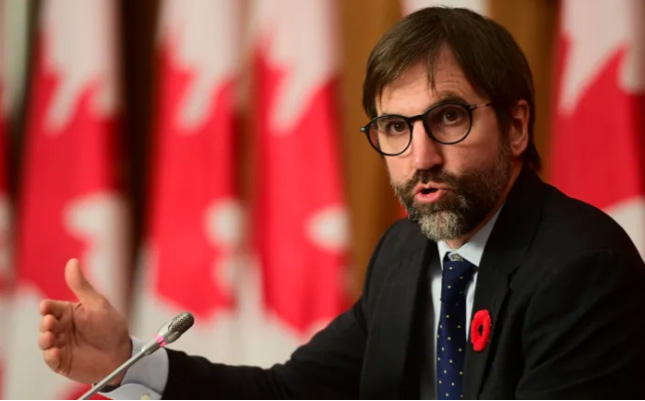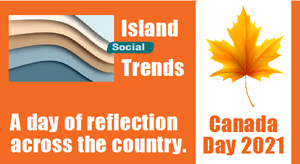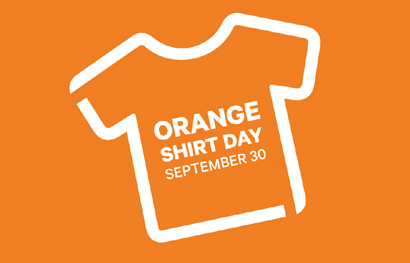Thursday July 1, 2021 | NATIONAL
by Mary P Brooke, Editor | Island Social Trends
This Canada Day is not about fireworks and parties. There is a subdued and reflective tone, following the range of intense impacts of the finding of so far 1,148 unmarked graves on Indian Residential School grounds. That includes 215 on the grounds of the former Kamloops Indian Residential School in the BC Interior, 751 on the grounds of the former Cowessess First Nation in Saskatchewan, and 182 near Cranbrook, BC as announced yesterday by the Lower Kootenay Band.
For many decades in Canada, First Nations children were taken from their families (with the threat of imprisoning the parents if they didn’t send their children to the Indian Residential Schools). It is now being painfully uncovered that there was physical, psychological, spiritual and sexual abuse at the schools, which resulted in permanent trauma for most who were impacted, and in thousands of cases there was death.
Both the federal government (who commissioned the schools) and the Catholic Church (who operated the schools) are generally considered responsible, if not complicit in criminal acts.
Thereby, this is a very different Canada Day in 2021, one of reflection and assessment as to how this country moves forward from its “checkered past” while we also “celebrate the benefits of being Canadian”, as Premier John Horgan put it today during a quickly assembled wildfire emergency press conference.
Many people might — for the first time — take a look at the 94 calls to action (PDF download) of the Truth & Reconciliation Commision Reports that were completed in 2015.
Today we republish this Island Social Trends article from June 8, regarding how the House of Commons and senate fast-tracked legislation to create September 30 as National Day for Truth and Reconciliation, which is a new statutory holiday (republished below):
In the wake of the tragic discovery of the remains of 215 children on the grounds of what used to operate as the Kamloops Indian Residential School in BC, the Canadian government moved quickly last week to create a new national holiday.
September 30 each year will now be a day during which to mark the legacy of Canada’s residential school system and the abhorrent treatment of Indigenous populations.

Canadian Heritage Minister Steven Guilbeault told the Senate on Thursday June 3 that the objective is to create a chance for Canadians to learn about and reflect on a dark chapter in their country’s history and to commemorate the survivors, their families and their communities — as called for by the Truth and Reconciliation Commission and Indigenous leaders.
Fast-tracked:
Both houses of Parliament were prompted to fast-track the bill after last week’s grisly discovery of what are believed to be the remains of 215 Indigenous children in unmarked graves at a former residential school in Kamloops, B.C.
September 30 is the new official National Day for Truth and Reconciliation thanks to the fast-tracked Bill C-5 that just got royal assent on June 3, 2021 (just days after the news of the children’s remains burned rapidly across the country starting May 27).
Economic impact:
A statutory holiday in Canada means no one goes to work or school. Anyone who does have to work that day is paid time-and-a-half.
This will have an economic impact for employers across the country, but there was little to no mention of that last week. Although unanimously supported in the Senate, Guilbeault did face some questions about the cost of creating a new national holiday.
Officials in Ottawa estimated that the day off will cost the federal government almost $166 million each year, mainly in lost productivity, and another $223 million for federally regulated employers.
First there was Orange Shirt Day:
Until now, September 30 has been Orange Shirt Day, already since 2013 a day to remember the legacy of the impact of the residential school system on Indigenous peoples in Canada and how the schools were part of what is now considered to be cultural genocide.
September 30 was chosen for Orange Shirt Day because it is the time of year in which children were taken from their homes to residential schools, and because it is an opportunity to set the stage for anti-racism and anti-bullying policies for the coming school year.
Observing the new day:
Guilbeault acknowledged that the government can’t force people to use the new National Day for Truth & Reconciliation to reflect on the trauma caused by residential schools. But he expressed hope that it will be similar to Remembrance Day, creating an opportunity to educate and remind Canadians about the history of residential schools, honour the victims and celebrate the survivors.
Commemorations are likely to be (and arguably should be) Indigenous-led.
===== RELATED:
Premier Horgan on Canada Day: pandemic, First Nations, heat (July 1, 2021)
Recognition of Kamloops Indian Residential School tragedy at BC Parliament Buildings (June 8, 2021)
Powerful words on Indigenous healing & reconciliation from BC’s top doctor (May 31, 2021)
Premier Horgan’s statement on the ‘horror and hearbreak’ of the Kamloops discovery (May 28, 2021)







